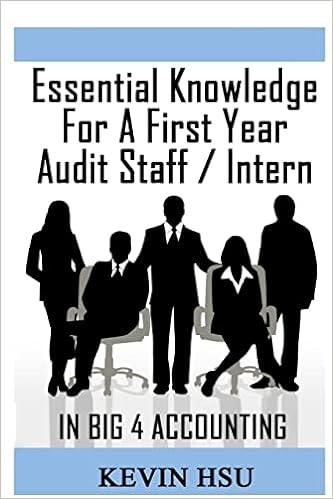Question
Classify each of the following costs incurred by a company that produces and sells office furniture as either a) Direct material, b) Direct labor, c)
Classify each of the following costs incurred by a company that produces and sells office furniture as either a) Direct material, b) Direct labor, c) Manufacturing overhead, or d) Selling and administration.
1. Advertising _____
2. Depreciation, delivery trucks _____
3. Wages for the employees who sand and finish the wood desktops _____
4. Utilities, factory _____
5. Armrests used to produce office chairs _____
6. The benefits of a successful Just-In-Time system include all of the following except:
funds tied up in inventories are released for use elsewhere
inventory buffers are increased
throughput is reduced
defect rates are decreased
7. The Standard of Ethical Conduct for Practitioners of Management Accounting and Financial Management states that significant ethical issues should be discussed first with an immediate superior unless the superior is involved. If satisfactory resolution cannot be achieved when the problem is initially presented, then the issue should be:
submitted to the next higher managerial level
submitted to the chief executive officer of the firm
submitted to the audit committee, executive committee, board of directors, or owners
submitted to outside counsel
8. Managerial accounting places considerable weight on:
Generally accepted accounting principles
The financial history of the entity
Ensuring that all transactions are properly recorded
Detailed segment reports about departments, products, and customer
9. Which of the following products would more likely be accounting for using job order costing?
Soda pop
Potato chips
An accounting firm
Crude oil refining
10. An OLS regression produces estimates of the intercept and slope as well as an R2 statistic. Which of the following best describes R2:
Total fixed costs
Total costs
Goodness of fit
Variable cost per unit
Problem Section (70 points total)
Problem 11 (25 points total)
a. Enter the following transactions on the T-accounts on the next page the beginning balances have already been posted (14 points):
a. Raw materials purchased on account $ 60,000
b. Direct labor incurred $ 40,000
c. Utilities for the factory incurred $ 20,000
d. Shipping costs incurred $ 15,000
e. Depreciation on factory equipment $ 12,000
f. Sales to customers on account $170,000
g. Apply 100% of manufacturing overhead to the production process
b. Using the following ending inventory amounts, make the remaining accounting entries to record the rest of the cost flows (6 points).
The ending inventory balances for the period are as follows:
Raw materials $ 6,000
Work-in-process $ 2,000
Finished goods $ 7,000
c. Using the T-accounts create an income statement below (5 points)
Problem 12 (20 Points Total)
Sizemore Bookbinders have estimated the following costs for next year:
Direct materials $25,000
Direct labor 45,000
Sales commissions 15,000
Salary of production supervisor 40,000
Indirect materials 15,000
Advertising expense 15,000
Rent of factory equipment 20,000
a. Sizemore estimates that 25,000 direct labor hours and 6,000 machine hours will be worked during the year. If overhead is applied on the basis of direct labor hours, calculate the predetermined overhead rate per hour (5 points).
Actual cost and activity for the year was as follows:
Actual manufacturing overhead costs incurred $70,000
Actual direct labor hours worked 24,000
Actual machine hours worked 5,500
b. How much manufacturing overhead should have been applied to work in process for the year? (4 points)
c. Using the above information, fill in the T-account below, find the ending balance and determine if the balance is under- or overapplied. (5 points)
Manufacturing Overhead
d. Close the over- or underapplied overhead to WIP, FG, and CGS. If the ending balances are $2,000 in WIP, $3,000 in FG and $15,000 in CGS, how much MO would be closed to each account? Indicate whether the entry to each account would be a debit or credit. (6 points)
Problem 13 (25 Points Total)
a. Identify each of the following costs as fixed (F), variable (V) or mixed (M) (8 points).
Year 1 Year 2 Cost behavior
Units 10,000 15,000
Cost of goods sold 175,000 262,500 __________
Depreciation 10,000 10,000 __________
Sales commission 35,000 52,500 __________
Shipping 20,000 27,500 __________
b. For the mixed costs identified in a above, use the high-low method to find 1) variable cost per unit, 2) total fixed costs and then 3) write out the cost formula. (8 points)
c. Using the information above, create a contribution approach income statement for Year 2. The sales price is $30 per unit (9 points).
Step by Step Solution
There are 3 Steps involved in it
Step: 1

Get Instant Access to Expert-Tailored Solutions
See step-by-step solutions with expert insights and AI powered tools for academic success
Step: 2

Step: 3

Ace Your Homework with AI
Get the answers you need in no time with our AI-driven, step-by-step assistance
Get Started


